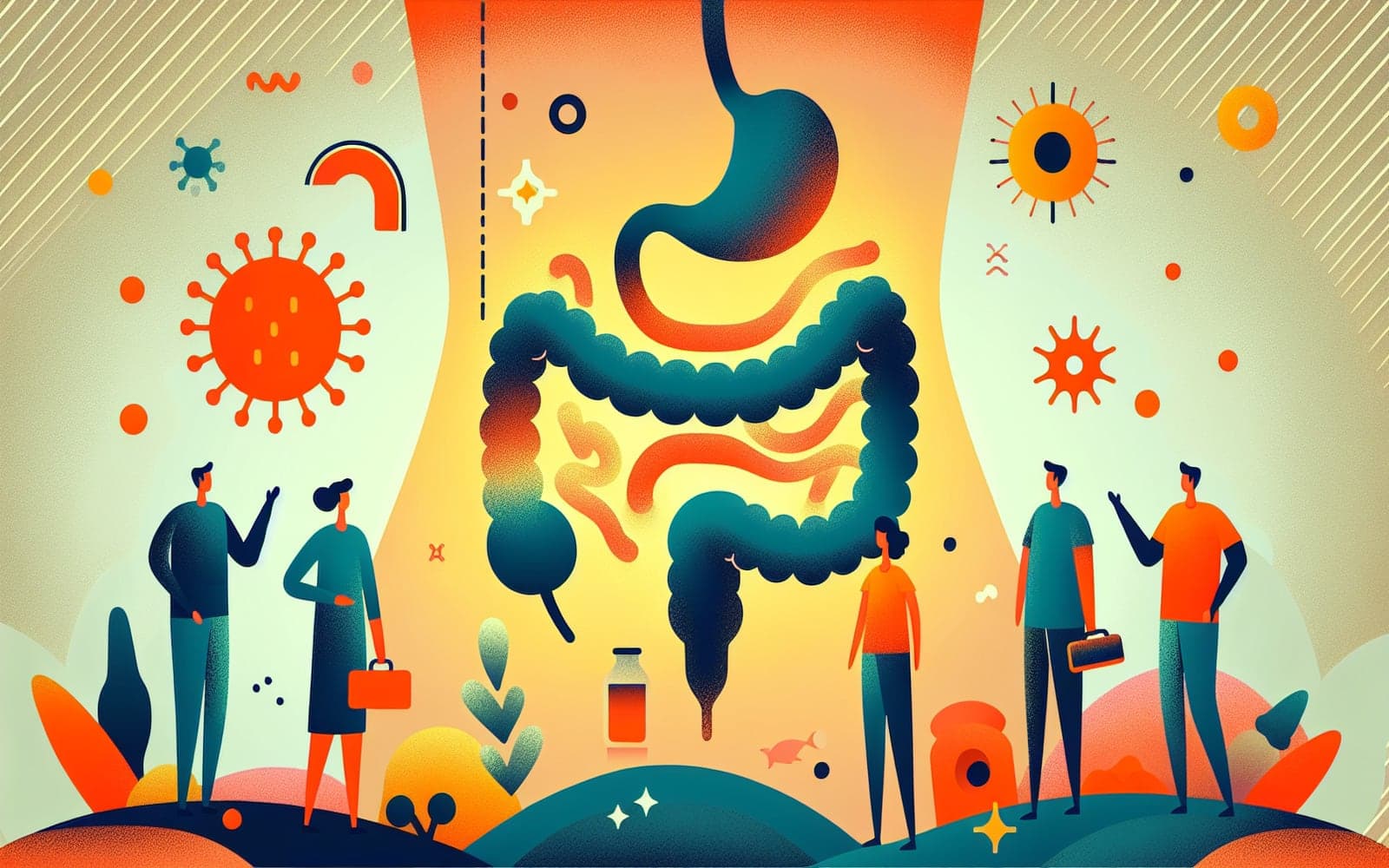What You Need to Know About Diverticulitis: The Gut's Pouchy Problem
What You Need to Know About Diverticulitis: The Gut's Pouchy Problem
The Big Picture
Diverticulitis is a common condition where small pouches in your colon become inflamed or infected. Understanding this condition can help you manage it better and prevent complications.
Contents
- What Causes Diverticulitis?
- Symptoms and Diagnosis
- Treatment Options
- Prevention and Long-term Management
What Causes Diverticulitis?
Diverticulitis occurs when small, bulging pouches (diverticula) in the lining of your colon become inflamed or infected. These pouches form when weak spots in the colon wall give way under pressure. While the exact cause isn't always clear, factors like a low-fiber diet, obesity, and lack of exercise may contribute to its development.
Symptoms and Diagnosis
The main symptom of diverticulitis is abdominal pain, usually on the lower left side. You might also experience fever, nausea, or changes in bowel habits. If your doctor suspects diverticulitis, they may order a CT scan to confirm the diagnosis. This imaging test can show inflamed or infected pouches in your colon.

Treatment Options
Many cases of uncomplicated diverticulitis can be treated at home with rest, a liquid diet, and pain relievers. Contrary to past practice, antibiotics aren't always necessary. However, if symptoms are severe or you have other health issues, your doctor might recommend hospital treatment. In rare cases, surgery might be needed if complications develop.
Prevention and Long-term Management
After recovering from diverticulitis, it's important to focus on prevention. Eating a high-fiber diet, staying hydrated, exercising regularly, and maintaining a healthy weight can all help. Contrary to old beliefs, you don't need to avoid seeds or nuts. Your doctor might recommend a colonoscopy a few weeks after your symptoms resolve to rule out other issues.
FAQs
Is diverticulitis serious?
While often manageable, it can lead to complications if left untreated.
Can diverticulitis come back?
Yes, but most people don't have recurrences with proper management.
Do I need surgery for diverticulitis?
Most cases don't require surgery, but it may be needed for complications.
Can I prevent diverticulitis?
A high-fiber diet and healthy lifestyle can help reduce your risk.
Is diverticulitis related to cancer?
No, but a colonoscopy is often recommended to rule out other conditions.
The Bottom Line
While diverticulitis can be uncomfortable, understanding the condition and following your doctor's advice can help you manage it effectively and prevent future episodes.
Additional References
- Stollman N, Smalley W, Hirano I, AGA Institute Clinical Guidelines Committee. American Gastroenterological Association Institute Guideline on the Management of Acute Diverticulitis. Gastroenterology 2015; 149:1944.
- Hall J, Hardiman K, Lee S, et al. The American Society of Colon and Rectal Surgeons Clinical Practice Guidelines for the Treatment of Left-Sided Colonic Diverticulitis. Dis Colon Rectum 2020; 63:728.
- Qaseem A, Etxeandia-Ikobaltzeta I, Lin JS, et al. Diagnosis and Management of Acute Left-Sided Colonic Diverticulitis: A Clinical Guideline From the American College of Physicians. Ann Intern Med 2022; 175:399.
This article has been reviewed for accuracy by one of the licensed medical doctors working for Doctronic.











